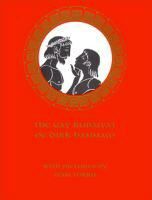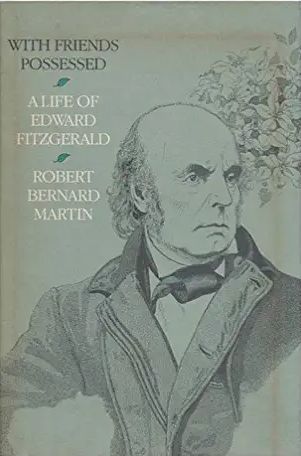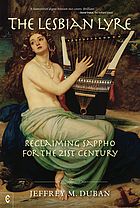The gay rubaiyat of Dirk Hannam with pictures by Ivan Torro.
Mobile : Factor Press, 1998. 55 p.
Biegstraaten 70
Archives
The exquisite amateur. FitzGerald, the Rubáiyát, and queer dilettantism
The exquisite amateur. FitzGerald, the Rubáiyát, and queer dilettantism. Benjamin Hudson
Victorian Poetry 54 (2016) 2 (Summer), pp. 155-177.
Though both popular and critical appraisals of FitzGerald’s translation have pointed out his, or the poem’s, amateurism, no inquiry has considered how the text itself cultivates its own antiprofessional stance—how it, in other words, invites readers to “Make Game” of life. Although this point may seem to be self-evident in a poem dedicated to inebriate pleasure, it is nonetheless worth considering, and clearly establishing, in order to identify how this amateurism, complicates erotic readings of the poem while enriching current critiques of its antiteleological temporality and agnosticism.
Common and queer: syntax and sexuality in the Rubáiyát
Common and queer: syntax and sexuality in the Rubáiyát. Erik Gray.
In: FitzGerald’s Rubáiyát of Omar Khayyám. Popularity and Neglect. Cambridge, Anthem Press, 2011. pp. 27–44.
Gray contends that FitzGerald’s Rubáiyát originally achieved its giddy popularity because it seemed so strange and daring, yet the poem’s very familiarity has tended to obscure what is most exceptional about it, its often puzzling language and its depiction of relations between men.
With friends possessed – a life of Edward FitzGerald
With friends possessed – a life of Edward FitzGerald. Robert Bernard Martin. London, Faber and Faber, 1985. 313 p. ISBN: 0571134629.
Summary:
Biography of Edward FitzGerald, describing him as an attractive, brilliant, eccentric, irrepressibly humorous, loving and deeply vulnerable person.
Pope’s Iliad and E. FitzGerald’s Rubáiyát
Pope’s Iliad and E. FitzGerald’s Rubáiyát.
In: The Lesbian Lyre: Reclaiming Sappho for the 21st Century. Jeffrey M. Duban. Clairview Books, 2016. 832p. ISBN 9781905570799
Summary:
Hailed by Plato as the “Tenth Muse” of ancient Greek poetry, Sappho is inarguably antiquity’s greatest lyric poet. Born over 2,600 years ago on the Greek island of Lesbos, and writing amorously of women and men alike, she is the namesake lesbian. What’s left of her writing, and what we know of her, is fragmentary. Duban provides a reader-friendly overview of Sappho’s times and themes, exploring her eroticism and Greek homosexuality overall.


